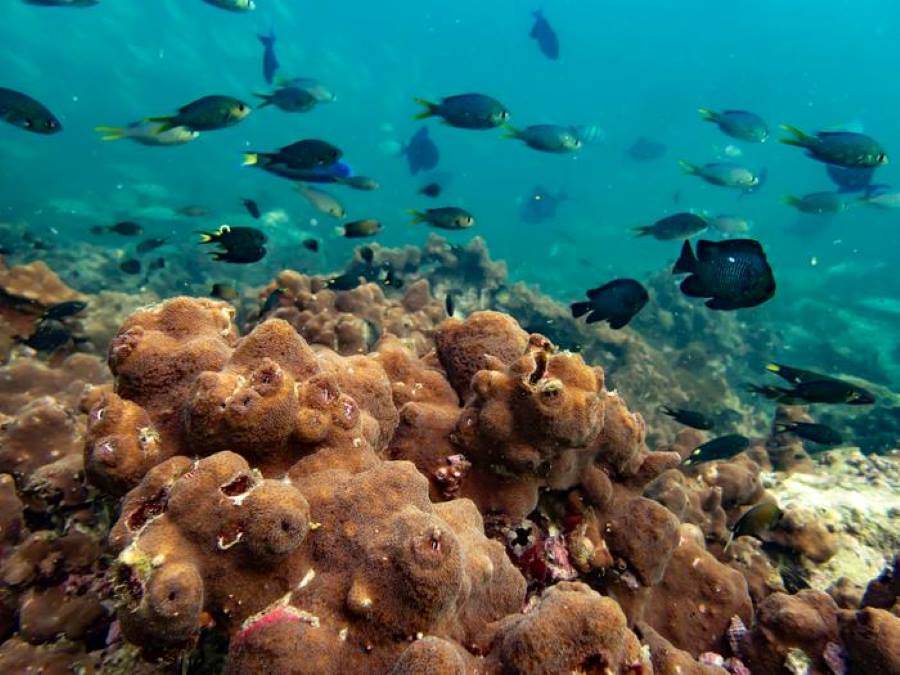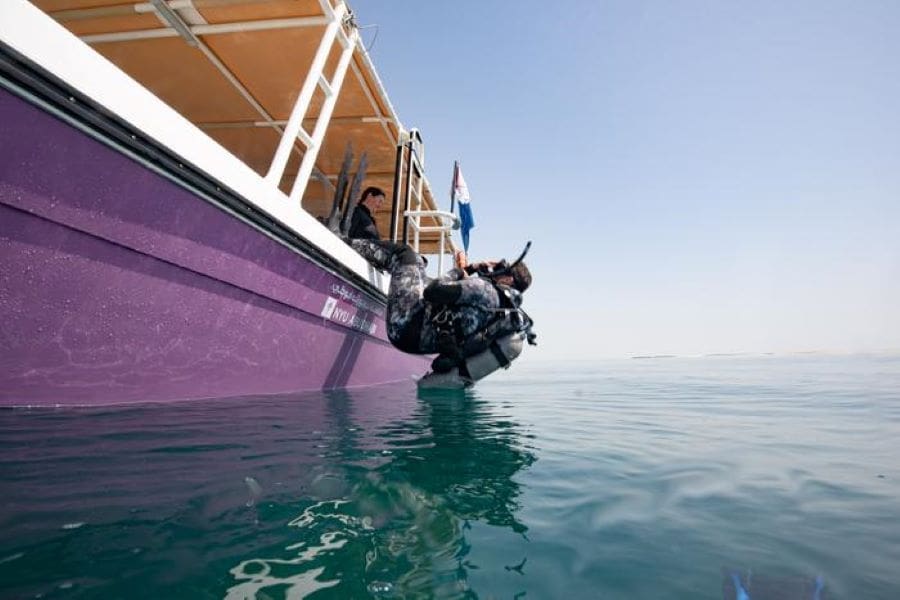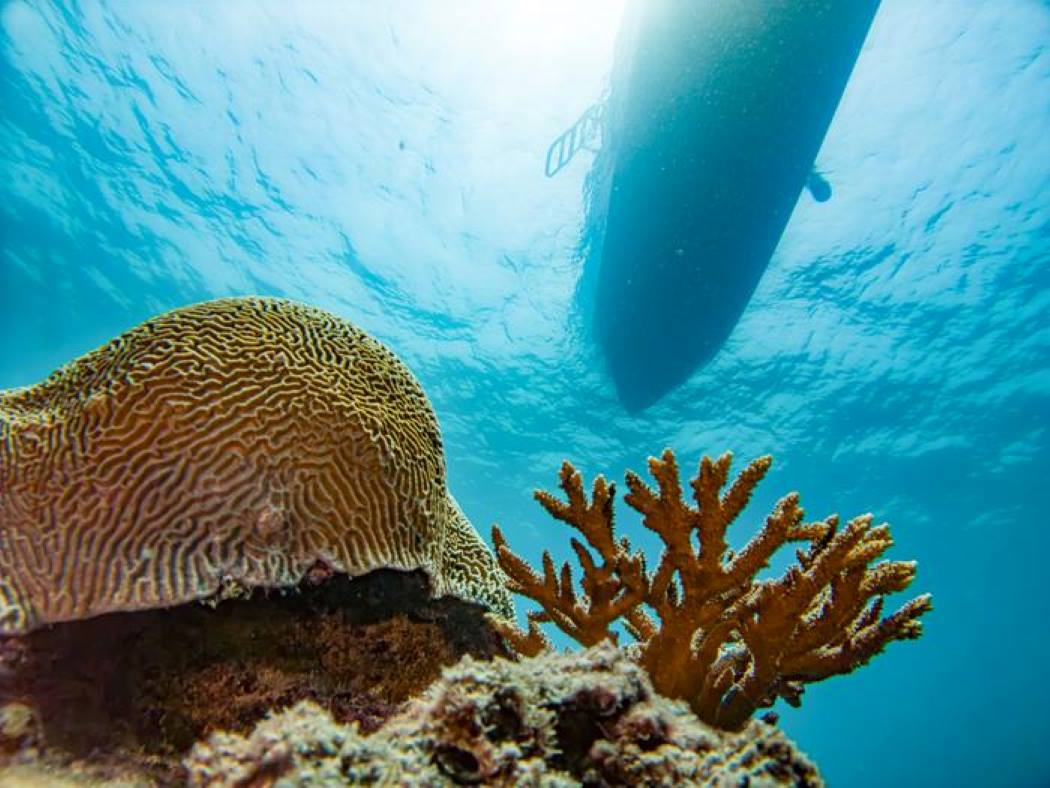Summary:
Some coral reef fish in the Arabian Gulf, the world’s hottest sea, exhibit a slightly higher tolerance to temperature fluctuations than their counterparts in more stable waters, according to a study published in Global Change Biology.
Researchers from the Mubadala Arabian Center for Climate and Environmental Sciences (Mubadala ACCESS) at NYU Abu Dhabi found that while certain species can endure extreme thermal variability, overall fish biodiversity in the region is significantly lower. The team compared the metabolic and physiological responses of reef fish in the Arabian Gulf with those in the milder Gulf of Oman. Their findings challenge a widely held hypothesis about how fish regulate their metabolic rates in response to warming waters.
The results suggest that only specific species can physiologically adjust to rising temperatures, raising concerns about the long-term survival of fish populations as global temperatures continue to climb.

NYU Abu Dhabi research highlights adaptability of some coral reef fish to rising temperatures
Researchers at the Mubadala Arabian Center for Climate and Environmental Sciences (Mubadala ACCESS) at NYU Abu Dhabi have found that reef fish from the Arabian Gulf, the world’s hottest sea, exhibit a higher tolerance to temperature fluctuations compared to those from more thermally stable coral reefs. However, the Arabian Gulf hosts fewer fish species overall, indicating that only certain fishes can withstand rising global temperatures.
The Arabian Gulf’s highly variable thermal environment provides a natural framework for studying how reef fish might cope with a warming climate. By comparing fish from this extreme habitat to those in the milder Gulf of Oman, the research team, led by Dr Grace Vaughan, Postdoctoral Associate Daniel Ripley, and Professor of Biology John Burt, discovered that fish in the Arabian Gulf demonstrate slightly higher temperature tolerance. However, overall biodiversity is lower. This suggests that while some species can adapt to environmental variability, the difference in thermal tolerance between the two regions was minimal.
The team’s findings have been published in Global Change Biology.
The researchers also tested a prominent hypothesis known as “plastic floors and concrete ceilings”, which suggests that fish can adjust their resting physiological rates, such as heart rate or metabolism, to adapt to warmer climates. They were the first to examine this theory in a coral reef ecosystem under increasing thermal variability rather than just rising average temperatures.

Comparing the metabolic rates of three reef fish species in the Arabian Gulf to the same species in the Gulf of Oman, they found no significant difference in metabolic rates. This suggests that the “plastic floors and concrete ceilings” principle, which was originally developed in colder water species, does not apply to tropical fishes experiencing shifting temperature variability.
“The increased thermal tolerance observed in fish from the Arabian Gulf suggests an adaptive response to years of extreme temperatures,” said Ripley. “However, the noticeably lower fish diversity in the Arabian Gulf compared to the Gulf of Oman indicates that only certain species can physiologically adjust to temperature changes, meaning fewer species will survive as the climate continues to warm.”
“While some coral reef fish in the Arabian Gulf show slight adaptability to increasing temperatures, many do not,” added Burt, who is also the co-principal investigator at the Mubadala ACCESS Center. “This suggests that as global temperatures rise, fish biodiversity is likely to decline in many ecosystems. Our findings highlight the need to further investigate existing theories of thermal tolerance across different environments to better predict the long-term impacts of climate change.”
Journal Reference:
Vaughan, G.O., Ripley, D.M., Mitchell, M.D., McParland, D., Johansen, J.L., Shiels, H.A. and Burt, J.A., ‘Narrow Margins: Aerobic Performance and Temperature Tolerance of Coral Reef Fishes Facing Extreme Thermal Variability’, Global Change Biology 31: e70100 (2025). DOI: 10.1111/gcb.70100
Article Source:
Press Release/Material by New York University | NYU Abu Dhabi
Featured image credit: Oliver Farrell | NYUAD




